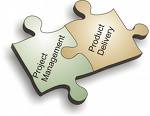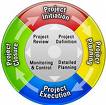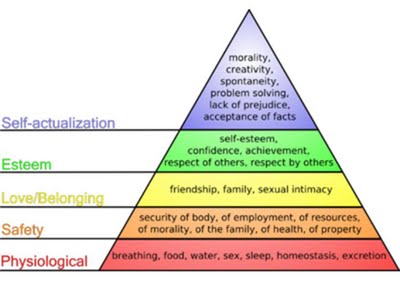8 Project Management Methodologies and Standards
You will find a more current article on PM Methodologies and Standards here: 7 Facts on Project Management Methodologies and Standards
I have decided to do a series of postings about Project Management methodologies and Project Management best practices. The purpose for this is not to replicate information that is already out there, but to inform, equip and empower business owners and service professionals about the project management profession and how to put it to use to sustain and grow their business.
As an introduction to this I have 8 questions to help define what a methodology and a standard is based on a summary of the best information I could find and that I know from experience. I would then like to encourage the reader of this post to contribute in the form of comments towards more methodologies and standards that can be covered here (and I encourage you to link to sites that you recommend as worthwhile reading on these topics.)
1. What is a methodology?
A methodology is a set of methods, processes and practices that are repeatedly carried out to deliver projects. It tells you what you have to do, to manage your projects from start to finish. It describes every step in the project life cycle in depth, so you know exactly which tasks to complete, when and how.
The key concept is that you repeat the same steps for every project you undertake, and by doing that, you will gain efficiencies in your approach.
2. What is a standard?
A standard is “a collection of knowledge areas that are generally accepted as best practice in the industry”.
3. What is the difference between a methodology and a standard?
Standards give you industry guidance, whereas methodologies give you practical processes for managing projects. Standards are not methodologies, and vice versa. The two most popular standards are PMBOK and Prince2.
4. Why use a methodology?
A Project Methodology should help you by giving you a clear process for managing projects. After you have customised it to perfectly fit your environment, your methodology should tell your team what has to be completed to deliver your project, how it should be done, in which order and by when.
5. What should be included in a project management methodology?
When you buy a project methodology, it should give you:
- A core set of processes to follow for delivering projects
- A set of templates to help you build deliverables quickly
- A suite of case studies to help you learn from past projects
- An option for customizing the methodology provided
- The ability to import your existing processes into it
6. What a project management methodology will not do?
A Methodology is not a silver bullet. It will not fix projects by itself or guarantee success and an efficient, effective experienced project manager is still required to deliver projects successfully. Remember that the finest carpenter’s tool-box will only be as good as the carpenter. No methodology will be 100% applicable to every type of project. So you will need to customise any methodology you purchase to ensure that it perfectly fits your project management environment.
7. What are the benefits of using a methodology?
By using a methodology you can:
- Create a project roadmap
- Monitor time, cost and quality (project triple constraint)
- Control change and scope
- Minimise risks and issues
- Manage staff and suppliers
Of course, you will need to use the methodology that is most suitable to each project you undertake. For smaller projects, you will only want to apply lightweight processes and when managing large projects, you should apply the heavyweight processes to monitor and control every element of your project in depth.
But if you can manage every project you undertake in the same way, then you will gain efficiencies with your approach, work smarter and reduce your stress. You will also give your team a clear understanding of what you expect from them and boost your chances of success.


8. A few project management methodologies examples with short descriptions:
- PRojects IN Controlled Environments (PRINCE) is a project management method. It covers the management, control and organisation of a project.
- Method 123 Project Management methodology, also called MPMM (Project Management Methodology Manager) is based on the worldwide project management standards PMBOK and Prince2 and contains all of the project management templates, forms and checklists needed.
- Ten Step Project Management Process is a methodology for managing work as a project and it’s designed to be as flexible as you need to manage your project.
- UPMM Unified Project Management methodology based on suite of knowledge management tools.
- AdPM – a best practices project methodology.
- MBP- Managing by Project from X-Pert Group. Programme and Project Management methodology and services.
- MITP – Managing Information Technology Projects. IBM’s established project management delivery method.
- Microsoft Solutions Framework (MSF) is a set of principles, models, disciplines, concepts, and guidelines for delivering information technology solutions.
Please add more project management methodologies that you have used and tell us more about them.
For related Project Management articles, click here.



































